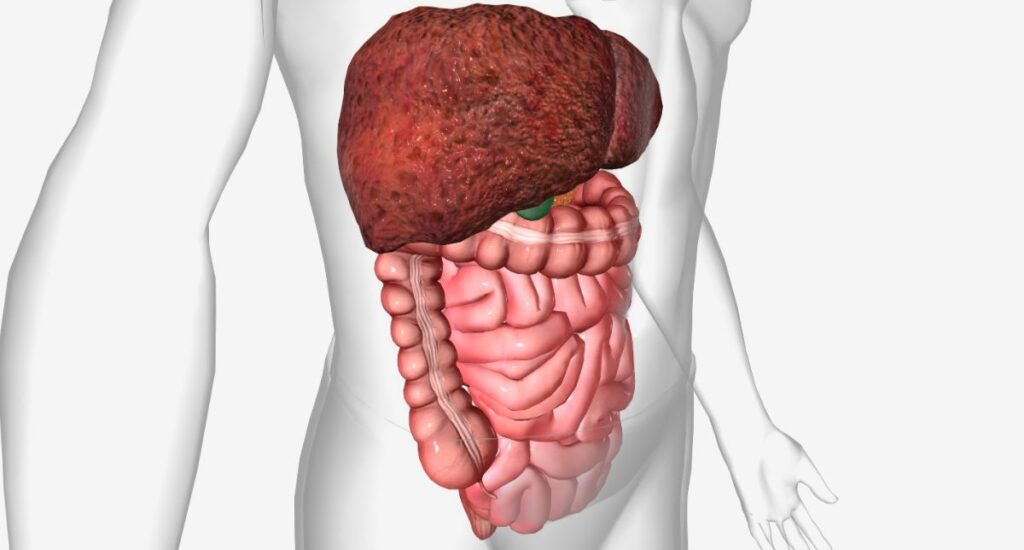“In the world of parasites, survival often means thriving at the expense of others.”
Parasites, often associated with tropical regions and unsanitary conditions, are stealthy invaders that can affect anyone, anywhere in the world. These microscopic organisms can find their way into the human body through various means, and their presence might go unnoticed until signs and symptoms manifest. Explore what parasites are, how they can infiltrate even in seemingly clean environments, and the signs you might have parasites.

Understanding Parasites: A Silent Threat
Parasites are organisms that live off a host organism, deriving nutrients and shelter at the host’s expense. Contrary to common misconceptions, these unwelcomed guests aren’t limited to tropical climates or third-world countries. Furthermore, they can thrive in diverse environments, and certain factors such as contaminated water, undercooked food, or poor hygiene practices can contribute to their transmission.
Global Impact: More Signs You Might Have Parasites
While the term “parasites” might evoke images of exotic destinations, it’s important to recognize that parasitic infections are not exclusive to specific geographic locations. Even in developed countries like the United States, Canada, Australia, and Europe where sanitation standards are high, parasites can still pose a threat. Certainly, contaminated water sources, improperly prepared food, and contact with infected individuals or animals are potential avenues for parasitic infections.
Additionally, it’s crucial to recognize that bug bites are another less-known but equally important means through which parasites can enter the human body. Parasites can be transmitted through the bites of various insects, including mosquitoes, ticks, fleas, and flies. Furthermore, in regions where these vectors are prevalent, individuals become susceptible to parasitic infections when bitten by infected insects. For instance, mosquitoes can transmit parasites, causing malaria, while ticks may carry Lyme disease-causing bacteria. To illustrate, such insect-borne parasites can swiftly enter the bloodstream during a bug bite, establishing themselves within the host and potentially leading to a range of health complications. While enjoying the great outdoors or navigating urban environments, it’s crucial to be aware of the potential risks associated with bug bites for safeguarding against parasitic infections and maintaining optimal health.
From Gastrointestinal to Organs: Parasites’ Uncharted Territories
Contrary to common belief, parasites don’t always limit their residence to the gastrointestinal system. These resilient invaders can infiltrate various organs, causing a spectrum of health issues. Some parasites, like liver flukes, choose the liver as their dwelling place, while others may take residence in the urogenital system. The ability of parasites to migrate and settle in organs underscores the complexity of their impact on our health, emphasizing the need for awareness and vigilance beyond the gastrointestinal realm.
A Closer Look: 10 Signs You Might Have Parasites
Parasites wield a significant impact on well-being, ranging from subtle discomfort to serious health issues. Recognizing the signs of a parasitic infection is crucial, as they can be elusive. Below are ten common indicators that you might be harboring parasites:
1. Gastrointestinal Disruptions
Parasites can cause gastrointestinal disturbances by interfering with the normal functioning of the digestive system. Uncomfortable symptoms such as nausea, vomiting, and diarrhea are signs you might have parasites. Moreover, parasites may also damage the tissues in the gastrointestinal tract leading to inflammation and intestinal permeability.
2. Persistent Fatigue
Parasites may cause chronic fatigue by disrupting bodily functions and causing nutritional deficiencies as they consume host nutrients. The immune response activated in the presence of parasites, along with the toxins they release, induces systemic inflammation. Furthermore, this inflammation, combined with the ongoing nutrient depletion, can collectively contribute to the persistent feeling of fatigue and lethargy.
3. Skin Afflictions
Parasites can affect the skin in various ways, often causing issues such as acne, itching, rashes, and lesions. In addition, the burrowing activity of certain parasites, like mites, may result in visible tracks on the skin. Inflammation, skin ulcers, and changes in skin color are also among the varied effects that parasites can have on the skin.
4. Weight Swings
Parasites can affect a person’s weight through several mechanisms. Firstly, they may interfere with the host’s nutrient absorption, leading to deficiencies that can result in weight loss. Additionally, some parasites can induce changes in appetite or alter the host’s metabolism, contributing to fluctuations in body weight. Lastly, certain parasitic infections may cause abdominal symptoms like bloating or diarrhea, potentially impacting overall weight.
5. Joint and Muscle Discomfort
Parasites can affect joints and muscles by triggering inflammation, leading to pain and stiffness. Furthermore, some parasites directly invade muscle and joint tissues, causing damage and reduced functionality. Parasites can impact the musculoskeletal system through symptoms like arthritis, muscle aches, and increased eosinophils.
6. Migraines and Headaches
Certain parasitic infections can be associated with migraines and headaches. Parasites that affect the central nervous system or cause inflammation within the body may lead to headaches as a symptom.
7. Mental and Emotional Struggles
Cognitive challenges such as brain fog, difficulty concentrating, lower mood, and anxiety are signs you might have parasites affecting neurological function. Parasitic infections can impact mental health indirectly through processes like inflammation, nutritional deficiencies, and toxin release.
The immune response triggered by parasites, characterized by chronic inflammation, has been linked to mood disorders. Concurrently, parasites consuming host nutrients may contribute to nutritional imbalances that affect brain function. The stress of coping with chronic illness, potential exposure to toxins released by parasites, and disrupted sleep patterns further compound the potential impact on mental health.
8. Hormonal Imbalances
Parasitic infections can induce stress responses in the body, prompting the release of stress hormones like cortisol. In situations of chronic stress, a phenomenon called “pregnenolone steal” may occur, diverting the precursor pregnenolone away from the synthesis of sex hormones, such as estrogen and testosterone, in favor of increased cortisol production. Furthermore, this redirection of resources can lead to imbalances in sex hormone levels, potentially impacting reproductive health with effects on menstrual cycles, fertility, and libido.
9. Anal Itching
Anal itching can be linked to parasitic infections like pinworms or threadworms, causing discomfort and itching around the anus. For instance, female pinworms may lay eggs in the perianal region, leading to irritation and itching, especially at night. Anal itching is a key sign you might have parasites.
10. Observable Worms and Eggs
In severe cases, the presence of the appearance of worms or eggs in the stool or around the anus may serve as a clear indication of a parasitic infection. Certainly, this visual evidence suggests an active infestation in the gastrointestinal tract.
For further insights on the signs you might have a parasite, take a listen to Dr. Stephen Cabral’s podcast, The Lesser Known Signs and Symptoms of a Hidden Parasite Infection.
Beyond Awareness: Actionable Steps to Keep Parasites at Bay
Now that you know the signs of parasites, let’s explore prevention. Preventing parasitic infections involves adopting a combination of hygiene practices, environmental awareness, and cautious behaviors. Here are some effective measures that individuals can take to reduce the risk of encountering and contracting parasites:
1. Safe Food Handling
Ensuring that food is properly cooked and prepared is paramount in preventing parasitic infections. Avoid consuming undercooked meat, raw seafood (think sushi), or unwashed fruits and vegetables, especially in areas where sanitation standards may vary.
2. Clean Water Consumption
Contaminated water is a common source of parasitic infections. It’s advisable to drink only safe high-quality water. When traveling to unfamiliar areas, consider using bottled or boiled water and avoid ice in drinks, as it may be made from untreated water.
3. Personal Hygiene Practices
Practicing good personal hygiene is essential in minimizing the risk of parasitic infections. Regular handwashing, especially after using the restroom and before handling food, can prevent the transmission of parasites from contaminated surfaces to the mouth.
4. Vector Control
In regions where insect-borne parasites are prevalent, using non-toxic insect repellent, wearing protective clothing, and utilizing bed nets can help prevent bites from mosquitoes, ticks, fleas, and other potential vectors. This is particularly important in areas known for diseases like malaria or Lyme disease.
5. Proper Waste Disposal
Inadequate waste disposal can attract parasites and their carriers. Certainly, ensuring proper disposal of waste, especially in outdoor settings or regions with poor sanitation, can reduce the risk of contamination and subsequent parasitic infections.
6. Screening and Parasite Cleanses for Pets
Pets can harbor parasites that are transmissible to humans. Regular natural parasite cleanses and maintaining a clean living environment for pets contribute to preventing the spread of parasites within households.
7. Educating Yourself
Being aware of the specific risks associated with certain geographic locations or activities can empower individuals to take targeted preventive measures. Without a doubt, staying informed about common parasites in an area and understanding their transmission routes is key to avoiding potential exposure.
Furthermore, by incorporating these measures into daily routines and lifestyle choices, individuals can significantly decrease the likelihood of parasitic infections, safeguarding their health and well-being. Similarly, proactive prevention remains a fundamental aspect of public health, promoting a world where parasitic infections are minimized and individuals can thrive without undue health risks.
Conclusion: Signs You Might Have Parasites Vigilance and Action
In the world of parasites, survival often means thriving at the expense of others. Recognizing the signs you might have parasites is the first step towards addressing and mitigating the impact on health. Seeking guidance from a certified Integrative Health Practitioner is crucial for assistance in evicting the parasites from the body. Moreover, investing in a Gut Bacteria & Parasite Test will also offer great insight into what is happening in the GI tract. Unquestionably, by staying informed and adopting preventive measures, individuals can reduce the risk of parasitic infections and prioritize their overall well-being. Remember, awareness is key in the battle against these silent invaders that may compromise our health.
If gaining the knowledge and skills to help others discover and evict these unwanted parasitic guests is exciting, schedule a call today to speak with an Integrative Health Practitioner where you can get your questions answered.
If you found the signs you might have parasites interesting, you may enjoy our blog on Navigating Thyroid Imbalance.














